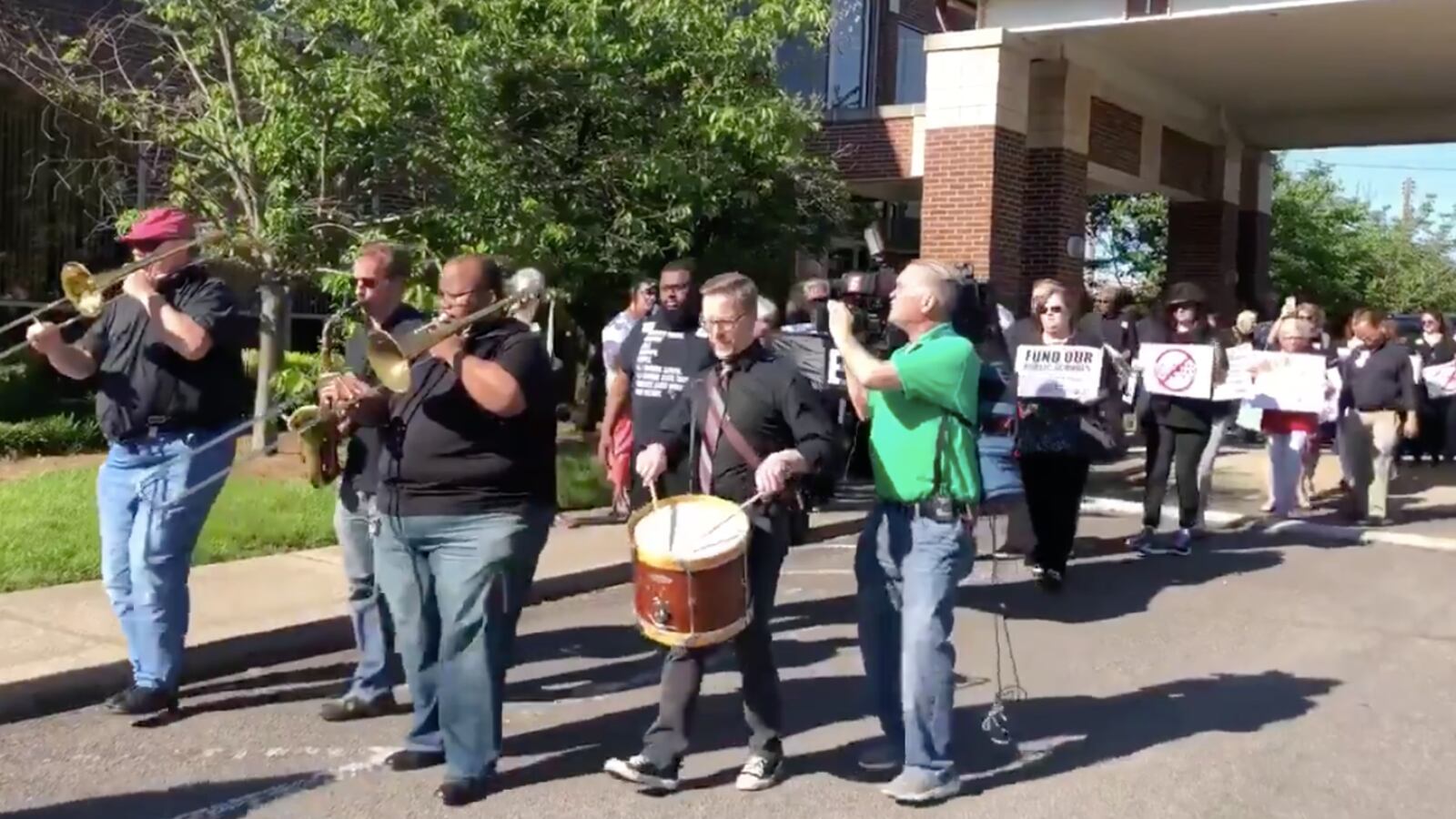Tennessee’s new governor is turning to an old playbook as he seeks to gather enough votes to pass his controversial voucher proposal.
Under the latest proposed revisions to Gov. Bill Lee’s signature education initiative, only students in Memphis and Nashville would be eligible to receive education savings accounts, a newer type of voucher that lets students withdraw from public schools and use taxpayer money to pay for private school or other education-related expenses.
Students in districts based in Knoxville, Chattanooga, and Jackson would be dropped from the plan, which the governor said is intended to give parents more education choices for their children.
The Senate amendment, released on Monday as lawmakers prepared to take up the bill again on Tuesday, is an attempt to garner critical swing votes from several Republican lawmakers who stood in the way of advancing the Republican governor’s bill last week.
Memphis, in particular, has been singled out numerous times for pilot programs that lawmakers in the rest of the state did not want in their own backyards. In 2017, the last major voucher legislation mounted in Tennessee targeted that community but ultimately stalled. Previous laws related to annexation and school district secession also were perceived as hitting hardest at Memphis, where a large percentage of the population is poor and black.
If approved, the new Senate proposal would make other significant changes to Lee’s plan. It would cut the size of the pilot program in half to 15,000 students and delete a constitutionally suspect provision requiring that applicants provide government-issued documents like birth certificates, driver’s licenses, or passports.
Removing Hamilton County from the pilot program and deleting the requirement for checking the immigration status of participants appear to clear the way for a “yes” vote from Sen. Todd Gardenhire of Chattanooga, a voucher fan whose support is needed to tilt a tight vote in the Senate Finance Committee in the governor’s favor.
“Those were my two non-negotiables,” Gardenhire told Chalkbeat Monday after the amendment was released.

Gardenhire wants Hamilton County shielded for at least four years to give five low-performing Chattanooga schools a chance to improve in that district’s Opportunity Zone, an initiative launched last fall in partnership with the state after years of talks.
But his demand to drop the language aimed at undocumented students who reside in Tennessee — which Gardenhire says “is a matter of fairness” — also stands to torpedo the bill in the House. The lower chamber added that provision after the Federation for American Immigration Reform warned conservative lawmakers that the new government program could benefit people without legal authorization to be in the country.
The House bill retains the language and also contains other key differences from the Senate bill. It would restrict the program to districts in the state’s four largest cities and shift reimbursement funds originally intended to help urban districts in the transition so that some of that money would go instead to rural districts with schools in the state’s bottom 5%. The latter change was made last week to gain support from rural Republican lawmakers who have resisted voucher plans in previous legislative sessions.
The Senate amendment is aimed at Shelby County Schools and Metropolitan Nashville Public Schools, which have the state’s highest concentration of struggling schools, as well as the state-run turnaround district known as the Achievement School District.
Memphis and Nashville are also Democratic strongholds in a mostly red state and home to lawmakers who are mostly against vouchers.
“I certainly think that is the wrong path to go down — to take the largest school districts in the entire state for a pilot program,” Sen. Raumesh Akbari, a Memphis Democrat, said late last week as word of the possible change circulated.
Senate Minority Leader Jeff Yarbro said the newest proposal is a calculated move to start a voucher program that eventually would grow to other communities.
“This legislation started with a broader reach, and people in small towns, in suburbs, in rural areas know that this is an expansion that’s heading their way,” said Yarbro, a Nashville Democrat.
Senate Majority Leader Jack Johnson, who is sponsoring the bill and whose Williamson County district would not be affected, did not immediately respond to calls for comment.
However, Lt. Gov. Randy McNally said last week that he believed the bill would pass if it’s limited to Memphis and Nashville.
“I think the votes are there,” said McNally, a Republican from Oak Ridge.
You can follow the bill’s progress here.

